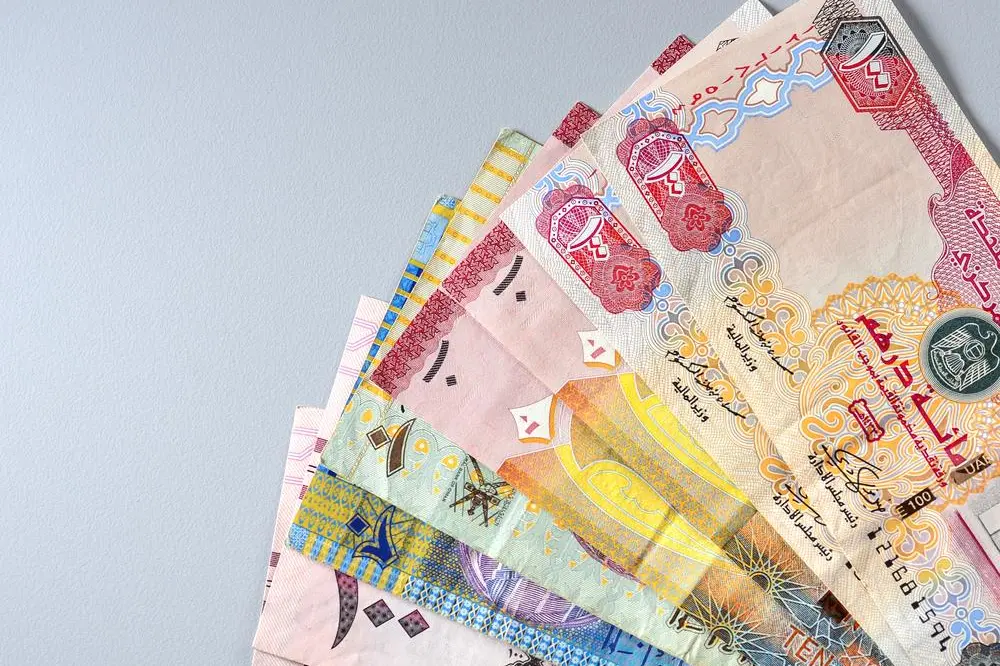PHOTO
DUBAI - New international bonds issued by three Gulf firms last week are trading lower, signalling a difference in pricing expectations between borrowers and lenders, as well as slightly weaker emerging market conditions, bankers and fund managers said.
Borrowers’ pricing expectations resulted in lower-than-anticipated demand for the issues, even for high-profile borrowers such as Dubai airline Emirates. The complex structures of some of the bonds did not help, several bankers said.
Emirates , which had been widely expected to raise at least $1 billion, priced $600 million of sukuk last Wednesday with a 4.6 percent yiel . The paper was trading with a yield of almost 4.7 percent on Monday.
Majid Al Futtaim , a Dubai-based company that owns and operates shopping centres in the Middle East, last Tuesday priced a $400 million perpetual subordinated bond with a 6.375 percent yield . It was yielding around 15 basis points more on Monday.
Saudi real estate developer Dar Al Arkan sold $500 million of five-year sukuk. Those notes were priced with a 7.125 percent yield last Wednesday, and yielded around 20 bps more on Monday. In cash price terms, the paper has shed almost one cent since it started trading.
Richard Briggs, emerging markets strategist at London-based CreditSights, noted that credit spreads across emerging markets have narrowed in the past week.
But other factors are also at play in the Gulf. One banker who arranged the Emirates sukuk, and spoke on condition of anonymity because of commercial sensitivities, said it was challenging to complete the transaction, “purely because of the pricing aspirations of the issuer”.
A second banker, also an arranger of the deal, said order books for the transaction rose above $1 billion while the deal was marketed but then shrank when pricing was finally tightened from initial guidance in the high 4 percent area.
During marketing of the deal, Mashreqbank said in a research note that the initial guidance suggested the bond would price “at borderline fair value with little being left on the table for investors”. But the airline's name recognition and funds from a large group of 10 bookrunners bolstered demand, it said.
The structure of the deal was unusual as Emirates issued 10-year amortising sukuk with a weighted average life of five years. The airline is practically the only issuer of amortising sukuk, “so as an investor you need to have a specific appetite for the issuer to buy this paper”, the second banker added.
The Majid Al Futtaim deal was also complex: a perpetual subordinated bond with an eight-year non-call period. Usually, bonds are non-callable for five years. Majid Al Futtaim issued two such deals previously with non-call periods of five and 5-1/2 years.
"You can’t have a peculiar structure and ask for a tight price. The two things together, in a volatile market, don’t work. You can experiment with complex structures when the market is at a peak," said another banker.
Books for the Majid Al Futtaim deal reached slightly over $500 million during marketing. Last year, order books for the company’s non-callable bond, issued in March and maturing in 2022, hit $1.6 billion.
Bankers said Dar Al Arkan's case was different, as the company’s sukuk had a straightforward structure and orders for the transaction exceeded $1.1 billion when books were opened, which signalled strong investor appetite.
Nevertheless, the deal was finally launched with a 7.125 percent yield -- exactly the same yield at which Dar Al Arkan issued $500 million of five-year sukuk last year, even though U.S. interest rates have climbed since then.
(Editing by Andrew Torchia and Kevin Liffey) ((Davide.Barbuscia@thomsonreuters.com; +971522604297; Reuters Messaging: davide.barbuscia.reuters.com@reuters.net))





















